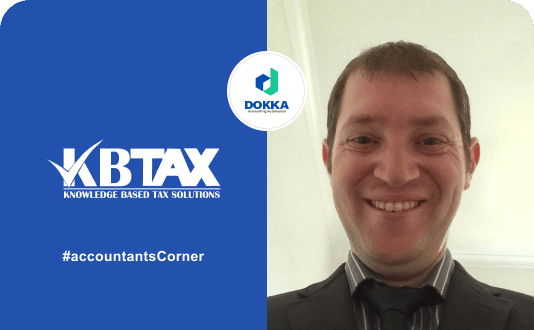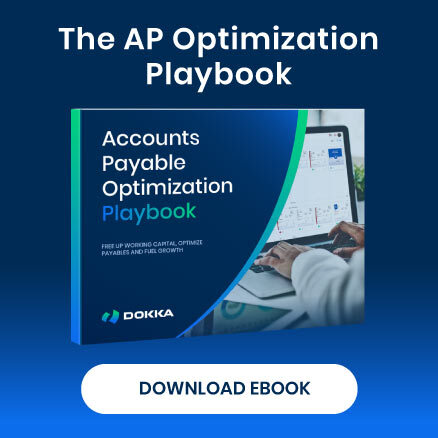Want to know how Akiva Brett built a South African tax practitioner business helping businesses with both tax and bookkeeping issues?
Then read this fascinating interview that I recently had over Zoom with Akiva Brett, the CEO of South African taxation and bookkeeping firm, KB Tax.
Here is the conversation that Akiva and I recently had over Zoom:
Eric: Nice to chat. How did you get into this world of bookkeeping, accounting and taxation. I’m also interested to understand what a tax practitioner does in South Africa.
Akiva: I studied accounting in school as one of my subjects and I liked it very much. After school I did the aptitude tests, and they said that I had an ability for figures. So I did a B.Comm accounts and Tax Honours. After finishing the Degree and Honours, I worked at three audit firms. I also worded at SARS in the Anti-Corruption (Forensics) Dept, where I spent two years.
What is SARS? From Wikipedia…
The South African Revenue Service is the revenue service of the South African government. It was established by legislation to collect revenue and ensure compliance with tax law.

What does a tax practitioner do?
E: So you started your own business specializing in tax issues?
A: Yes, I met people along the way who asked me for help with tax issues, and in January 2017 I started my own business. KBTax specialises in raising objections to SARS through unique methods of problem solving, analysis and reconciliation. We also provide bookkeeping services.
E: So for your tax clients, most of them have tax issues on a once off basis. Which means that you help them once off, but once you’ve helped them with their tax issues, they no longer need to use your tax services. Is that why you offer bookkeeping services as well, as these bookkeeping services are repetitive while providing tax solutions for SARS are often once off.
A: Not necessarily. Every client may have more than one tax related matter to address. Bookkeeping services provides monthly recurring revenue. It all depends as well whether I have been referred and just attending to one matter or perhaps I may be a tax practitioner for a client and handling all their taxes.

Bookkeeping versus Accounting versus Taxation
E: Let me try understand something. If bookkeeping is done correctly on a monthly basis, and there are tax issues that come out of it, is that because the accountant hasn’t properly verified the work that the bookkeepers have done? Or where do the issues between bookkeeping, accounting and taxation issues lie?
A: That’s an interesting question. My assumption is that it could be because the accountant hasn’t done their ticks and balances. Sometimes the Accountant has verified all the figures with their bookkeeper and SARS merely request an audit.
The Accountant hasn’t done their ticks and balances.
The Presidents Keepers & SARS
E: I’ve always understood that SARS is one of the most efficiently run organizations in South Africa. But a book came out in South Africa about a year ago, The Presidents Keepers, which said that SARS is going through a lot of trouble lately. And that SARS had actually lost money in the last two quarters.
From Wikipedia:
The President’s Keepers. The President’s Keepers: Those Keeping Zuma in Power and out of Prison a 2017 book by Jacques Pauw, an investigative journalist from South Africa about allegedly corrupt and compromised power networks in the government of President Jacob Zuma.
A: I agree with you 100%. I think SARS is a well-run government organisation and tax collection service. They may have lost money in the last two quarters but I am sure a lot has to do with the economy as well.
E: Do you have any interesting stories that you can share from when you were doing anti-corruption internally in SARS?
A: These stories are confidential so I would prefer not to share them in public.
Automation in the bookkeeping, auditing and taxation space
E: This really gets me thinking about automation in the bookkeeping, accounting, auditing and taxation spaces. I’ve had a lot of discussions with people about accounting automation and the consensus is that in the next decade accounting automation together with blockchain and artificial intelligence and machine learning, a lot of the data processing side in bookkeeping will become automated, and that bookkeepers will need to become retrained to become advisors and accountants will be dealing more with advisory issues.
But it sounds to me on the tax side even if taxation becomes automated, (and I’m interested to hear your views on how automated you think taxation can become), it sounds like there can be tax issues either from submitting something incorrectly, or by the fact that audits are done by the national tax authorities, and there will always be a need for a tax expert such as yourself, to look at these tax issues, and try resolve these tax issues, and try reclaim the money, no matter how automated taxation becomes. So I’m interested to hear your views on taxation automation.
A: I think there will always be people needed to analyse information. For me automation is great with marketing, storing information etc but not when it comes to figures. My belief is that software, platforms can help automate the processing of information. Human interaction will always be needed to analyse information.
Innovation in Bookkeeping versus Taxation
E: So if we look at a different country like the UK, where they’ve started implementing the GTD initiative (Get Tax Digital). You’re suggesting that tax specialists in the UK in the next decade, or maybe two, won’t be needed, or won’t be needed as much because the input process is automated, and the government will have the systems and the competency to automate the taxation process. So taxation issues will become very irregular. Am I understanding it correctly?
A:I think that tax experts will always be needed no matter the circumstances.If you think about some of these big investment houses, I am sure there will always be people behind the computer screens. There will always be people analyzing information. Automated systems are very good to record information.
E: Lets take a look at the innovation in bookkeeping versus taxation. You’re involved in both sides of that, providing bookkeeping services and taxation services to your clients. Over the last few years, has bookkeeping or taxation gone through more innovation and where do you think there will be more innovation in the future, if you’re looking at these two sides of your business.
A: My clients don’t use automated systems. I think bookkeeping has gone through huge innovations such as online portals etc. Accounting software has also enabled bookkeepers to process information efficiently such as bank feeds etc and also provide the client with management reports and assist them in making decisions. I wish the same could be done to assist Tax Consultants.
Desktop Accounting Software versus Cloud Accounting Software
E: What are your thoughts on desktop versus cloud accounting software? On the one hand there are cost benefits of using desktop accounting software, and there are certain features that are still not available on the cloud accounting software. But a lot of businesses are moving to cloud accounting software. Where do you think accounting software will be going in the future.
A: We use both the Pastel Desktop and online accounting software for our clients. My clients often have bookkeeping issues that are from many years back that need to be caught up, and we don’t have a need for cloud accounting software for that. It’s very easy to catch them up on desktop accounting software. The online accounting software caters more for smaller companies from what I understand. The other consideration is Corona though – if we keep with this new way of working in the online remote environment, then businesses can upload documents onto a system such as your system (DOKKA’s document collection & AI platform), and it will be easier for myself as a bookkeeper to process the information and create the reports, submit the returns to SARS. As the online accounting platforms they may have more to offer.
From Medium:
Sage Pastel Xpress is an accounting software system which is perfect for small and medium scale industries. This is integrated software for accounting solution helps small and medium-sized companies to manage business control.

Mariners Wharf, Associated Media & Caxton
E: My last question is about the business environment in South Africa, focusing on the smaller businesses, the SMME’s that you’re helping a lot with their bookkeeping requirements. In the beginning with the lockdown in South Africa, it sounded like a lot of the business environment in South Africa supported it. But it now seems that a lot of business owners, both small and large, are seeing a lot of businesses going under, and they’re getting upset about the lockdown conditions.
In the last few days, Associated Media has shut their magazines, as has Caxton. And it’s very sad to read that Mariners Wharf in Cape Town is shutting down. It’s very sad in the business environment. You are on the coalface with businesses. What is happening at the moment?
A: From my perspective, people don’t separate the virus with the lockdown. They see it as one big thing. People forget that this virus can be so severe. We’ve had to shut our businesses to save our lives. Businesses selling physical goods will have to think of innovative ways and doing things online more so than perhaps they were doing before. If it’s a service, such as what DOKKA is doing, or my type of business, then you can carry on. With gratitude to the online systems, internet etc. In my business you can upload documents, submit returns etc.
We’ve had to shut our businesses to save our lives.

eCommerce is banned in South Africa
E: So I was going to end the discussion there, but recently, a South African who I follow on Facebook, Rich Mulholland, put a strongly worded rant out that e-commerce in South Africa has been banned as well. I don’t know if Amazon has been allowed to deliver to South Africa, but from what I understand, even e-commerce sites in South Africa are not currently allow to operate.
Woolworths & Pick n Pay & Checkers offer home service with restrictions, as they are essential food services, but I’ve heard rumors that Takealot is suing the government. If you want to buy a computer in an online store, or a printer, or anything like that, anything which isn’t essential services, you can’t. Is that correct?
A: That’s because they’re not considered essential services according to the South African authorities. If they were considered essential services, then they would be allowed to operate. It is stifling and may be petty and pound foolish. We should be able to have these businesses running. I think the government has gone out their way to lay down regulations in the focus of saving our lives, but perhaps their strategy and defining what really essential is can be re-examined.

E: Thanks Akiva. Stay safe, and best of success with both your taxation and bookkeeping businesses.
SARS & Tax Practitioners in South Africa
That was an interesting discussion with Akiva Brett on understanding more about taxation & tax practitioners in South Africa.
NOTE: Shortly after this article was published, the South African government reversed their decision on eCommerce in South Africa, opening it up, so that the eCommerce vendors, even those offering non-essential services, could start trading again.
Do you have strong views on the Accounting & Bookkeeping industry?
This is a series that DOKKA is running where we explore the thoughts of Bookkeepers, Accountants, CFO’s & others involved in the Bookkeeping & Accounting space throughout the world.
See some of our other discussions with accountants & bookkeepers:
Mary McBlain from McBlain and Davis Accountants – Understanding the Bookkeeping & Accounting industry in the UK
Hossein Dadkhah from DataDrivenCIOs – Factors Accounting companies should consider when dealing with client data
Lisa Cervantez from PureSpeed Lightwave – Why an internal Finance Team chose SAGE 300 as their Accounting Software
Jeffrey Levine from Persofi – Bookkeeping differences between Israel versus the UK
Zane Orton from M-inent – Future of Bookkeeping
Akiva Brett from KB Tax – A South African Tax Practitioner
Julie DeLong from Backyard Bookkeeper – Part 1 – Choose between Quickbooks Online and Quickbooks Desktop
Julie DeLong from Backyard Bookkeeper – Part 2 – Advice from a Virtual Bookkeeping Company
Holly Dunn from Accountable Bean – SAGE versus Intuit
If you have strong opinions on the Bookkeeping & Accounting industry, we’d love to have a discussion with you.








